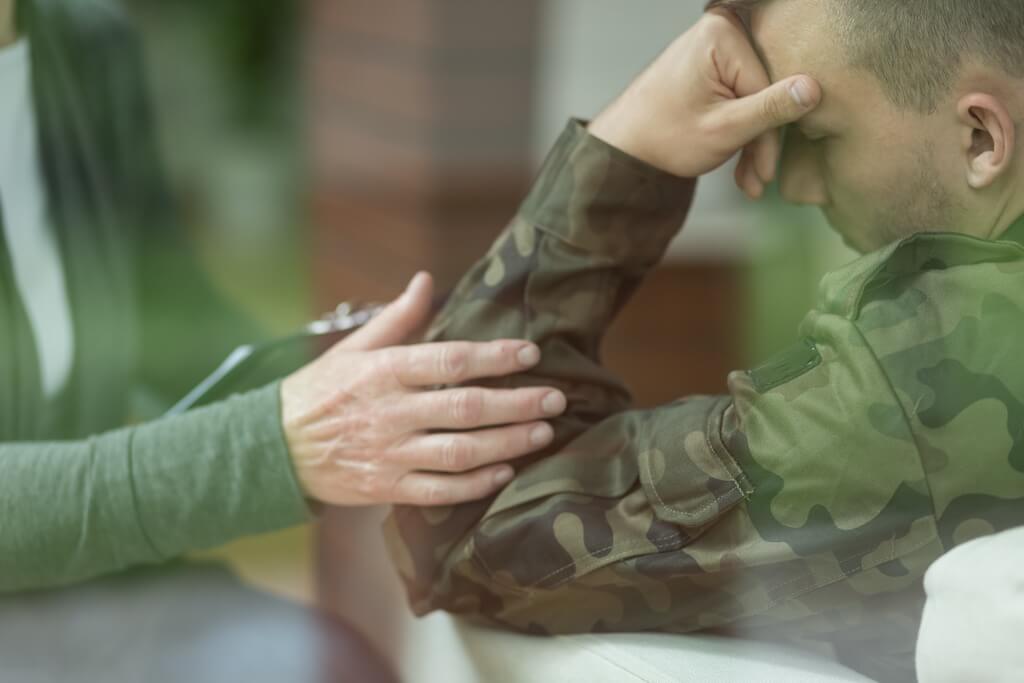
I am not a soldier. I do not want to be a solider. Fighting in a war has not been on my bucket list – ever. Are you kidding me? After a five-mile run I gobble down Aleve to calm my weary bones. I direct my car to swing by the local coffee shop for a cup of java as a reward for my grueling hour in the wilds of suburbia pounding the manicured bike path carrying my cumbersome iPhone. Yes, I am quite certain the military would take one look at me and laugh. Not only that, I am really old.
No, I am not a soldier. However, I know a few individuals who have or are currently serving our nation in the military. I bet you do, too.
Recently I attended a Tedx conference in Naperville, Illinois. As usual, the speakers came from many different walks of life with fresh perspectives that illuminated the thinking of attendees. One of the speakers was Dr. Richard Doss of the Strong Minds Institute. He is an Army Suicide Prevention Expert who works with soldiers as they re-emerge as civilians after serving.
There is no question it would be difficult for someone who has fought overseas to readjust to “real life”. However, I was shocked to learn that soldiers who have never fought in a war have just as many mental and emotional needs.
After Dr. Doss presented, I had the opportunity to speak with him personally for a few minutes. The compassion, care, and concern he has for our soldiers is sincere and impactful. I learned a few facts that may surprise you; they are too important not to share, especially as we honor our Vets on Veterans Day this week.
- It does not matter if a soldier has only been trained to go to war or has actually been in combat: the suicide rate is the same. We lose 7400 vets to suicide each year.
- Soldiers are trained to lose empathy and become an “emotional fortress”. Soldiers Don’t Cry. They are trained to take a life; they can become emotionally numb.
- Soldiers are trained to mask their need for help even when they feel stressors barreling down on them.
- Soldiers learn to “camouflage” their feelings.
- The mission comes first: no time for complaining.
- If a soldier does request assistance for mental or emotional help, it can effect how his leaders perceive him. Therefore they may choose not to ask for help.

As an adolescent sexuality health educator, why would I write about this? I know, it seems an odd platform to inform about support services for our military personnel. But think about it: How many of you have children who have opted to enlist rather than go to college? How many of you are aware of PTSD and the effects it can have on family? Marriage? How many of you know the conversations that must be had with our children as they prepare to go to basic training, or as they emerge as newly-appointed soldiers?
As parents and other caretakers, here are suggestions how to effectively support these brave young men and women.
- Tell them it is okay not to be brave when they are at home.
- Be that person that says, “It’s okay. I’m here for you whenever you need to talk – or cry.”
- Do not ask them “Who did you kill?” Ask them “How did you heal?”
- Help them seek assistance from organizations such as Strong Minds Institute to help them adapt to civilian life.
- They need to be connected with family and friends. “Check in” with your soldier. Call them. Send letters. Send gifts. They need the continued caring communication and support during and after their service to our country.
- Be that person they can share their experiences with, or find someone who can.
- Romantic relationships can be especially tough when trained to be emotionally numb. Seek counseling.
Do you see a theme here? Connecting. Caring. Counseling.
Our Vets deserve a reason to live.
As family members, perhaps seeking information about how to best support your loved one upon their return would be beneficial to the well-being of not only your soldier, but your entire family.
Now, where are my running shoes? I have some pavements to pound.
Thank you to Dr. Richard Doss for providing all of this information. Thank you, too, for the work you do with these amazing soldiers.

On this Veteran’s Day, I would like to acknowledge my nephew Austin who is graduating as a new soldier from the Army this month. (We are so proud of you!) I also want to thank my my Uncle Bobby for his service in the Marines and my Uncles Gary and LeRoy for their service in the Navy.



Lovely Healing Post today Kim. Thank you.